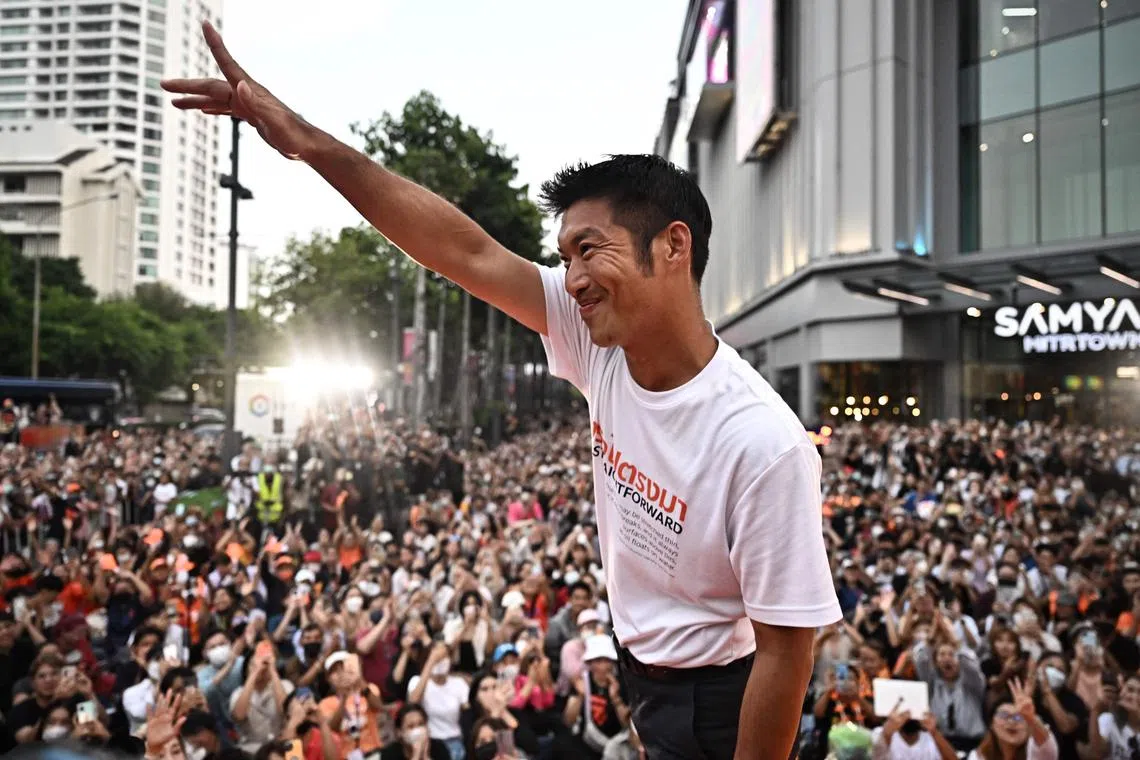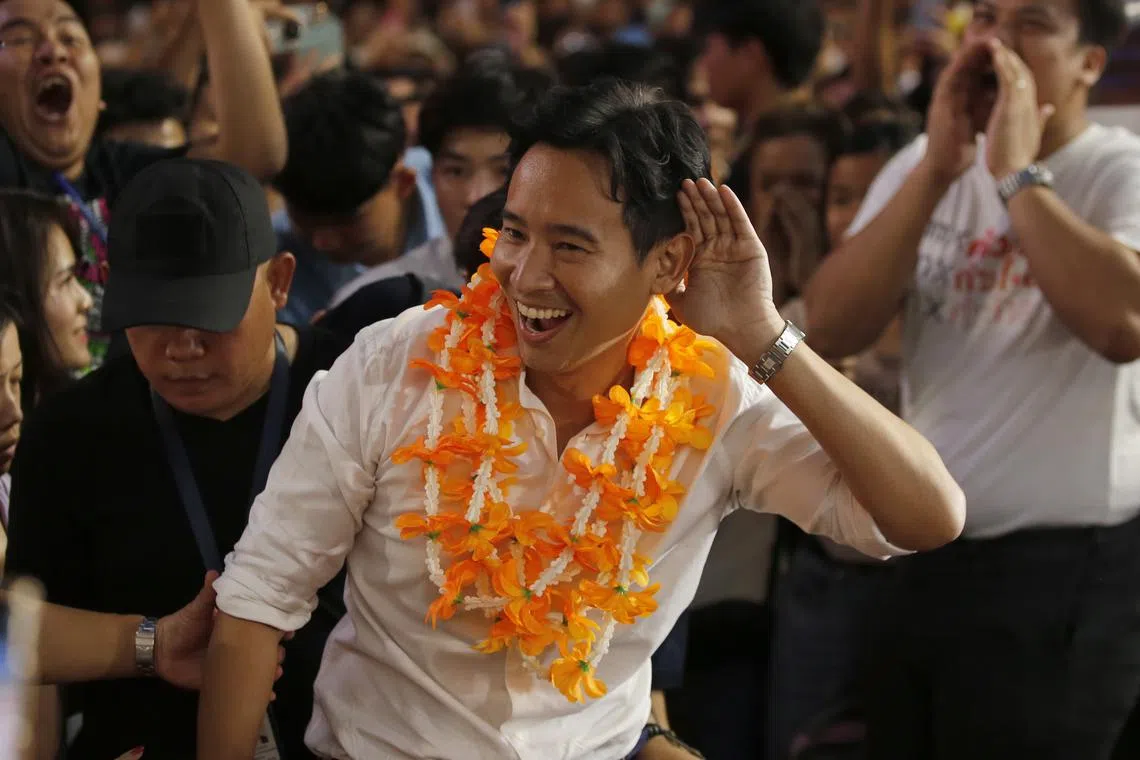Thai opposition frames election as generational choice
Sign up now: Get insights on Asia's fast-moving developments

Thai politician Thanathorn Juangroongruangkit at a Move Forward Party rally in Bangkok on April 22.
PHOTO: AFP
BANGKOK – Thailand’s second-largest opposition party framed the May elections as a generational choice between what it called on Saturday “a dark present and a bright future”.
Thailand goes to the polls on May 14.
It will be the country’s first election since the kingdom was rocked by major student-led pro-democracy protests in 2020 calling for political reform.
The election is shaping up to be a clash between incumbent ruling parties, backed by Thailand’s conservative military and royalist establishment, and more reformist and progressive opposition groups.
“Election day is a choice between the dark present and a bright future,” Mr Thanathorn Juangroongruangkit, the billionaire co-founder of the Move Forward Party, told supporters at a rally in Bangkok.
The party’s leader, Harvard-educated businessman Pita Limjaroenrat, told the crowd of about 2,000 mostly young voters that “we will change Thailand together”.
“A vote for Move Forward is a vote for the younger generation to change the country,” he said.
Recent opinion polls show Move Forward is second to Pheu Thai, the biggest opposition party that has Ms Paetongtarn Shinawatra, the 36-year-old daughter of exiled billionaire and former premier Thaksin Shinawatra, as one of its candidates for prime minister.
Polling also shows the 42-year-old Pita trailing front runner Paetongtarn – whose father and aunt, Ms Yingluck Shinawatra, were ousted in coups in 2006 and 2014, respectively – in the “preferred prime minister” stakes.
These younger leaders are up against unpopular incumbent Prime Minister Prayut Chan-o-Cha, 69, who came to power in the 2014 coup,
Mr Pita has ruled out coalitions with Palang Pracharath or Mr Prayut’s United Thai Nation Party but has expressed willingness to ally with Pheu Thai to form the government.
Despite the opinion polls, Thailand’s 2017 Constitution gives military-linked parties a big advantage.
A candidate must win the support of a majority of the 500 elected Lower House MPs and 250 military-appointed senators to become prime minister.

Move Forward Party leader Pita Limjaroenrat told a crowd of about 2,000 mostly young voters in Bangkok on Saturday that “we will change Thailand together”.
PHOTO: EPA-EFE
Move Forward evolved out of a Thai court’s decision to dissolve Mr Thanathorn’s Future Forward Party
Newcomer Future Forward netted 6.3 million votes in 2019 to become Thailand’s third-biggest party with 81 seats.
Auto-parts billionaire Thanathorn has been banned from running for political office for 10 years but said he was not worried about history repeating itself.
“We would start again,” he told AFP.
“If the establishment dissolves our party again, they underestimate the anger of the people.”
Move Forward’s platform includes legalising same-sex marriage, scrapping mandatory military conscription, removing the armed forces from politics, rewriting the Constitution, and boosting the minimum daily wage to 450 baht (S$17.50).
It has also advocated reform of Thailand’s royal defamation laws,
More than 200 pro-democracy activists are facing royal defamation charges. Those convicted can be jailed for up to 15 years for each charge.
Millennial and Gen Z voters represent about 41 per cent of Thailand’s 52 million voters.
Fruit seller Pisit Alipong, 30, said he was tired of coups and the military’s involvement in politics.
“They are not capable and a waste of time,” he said. “It’s time to return power to the people after eight years.” AFP


